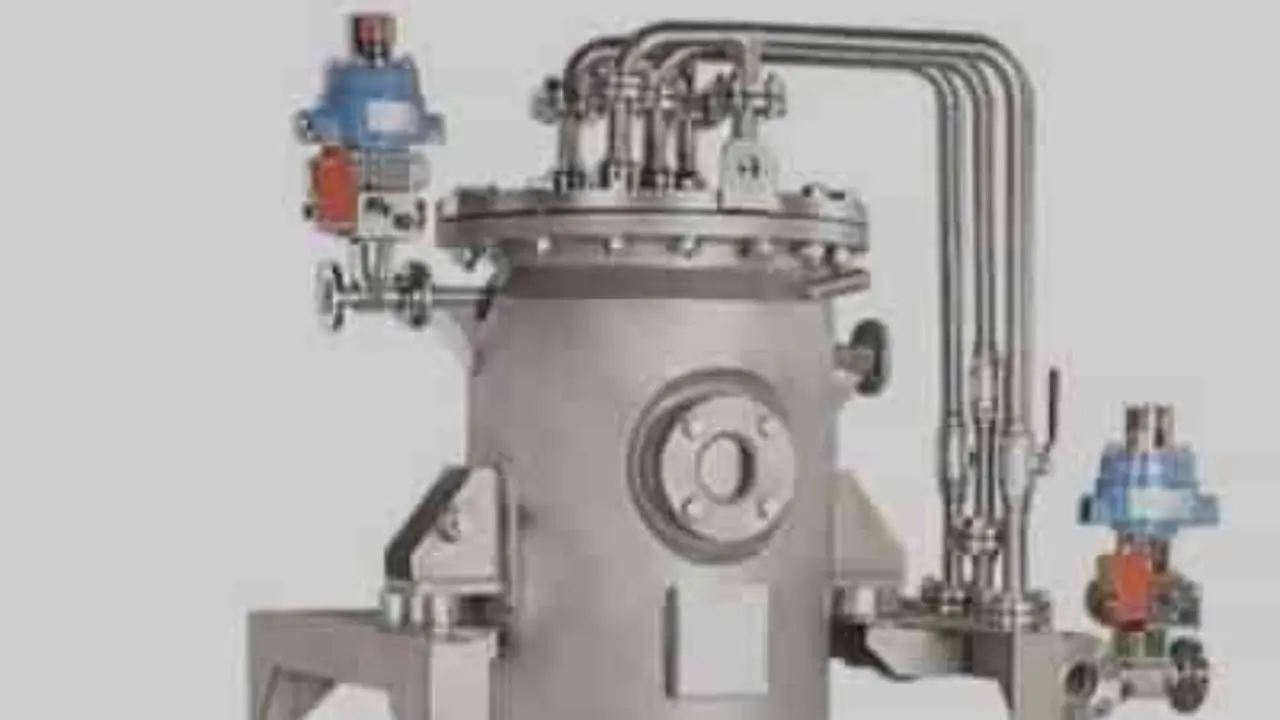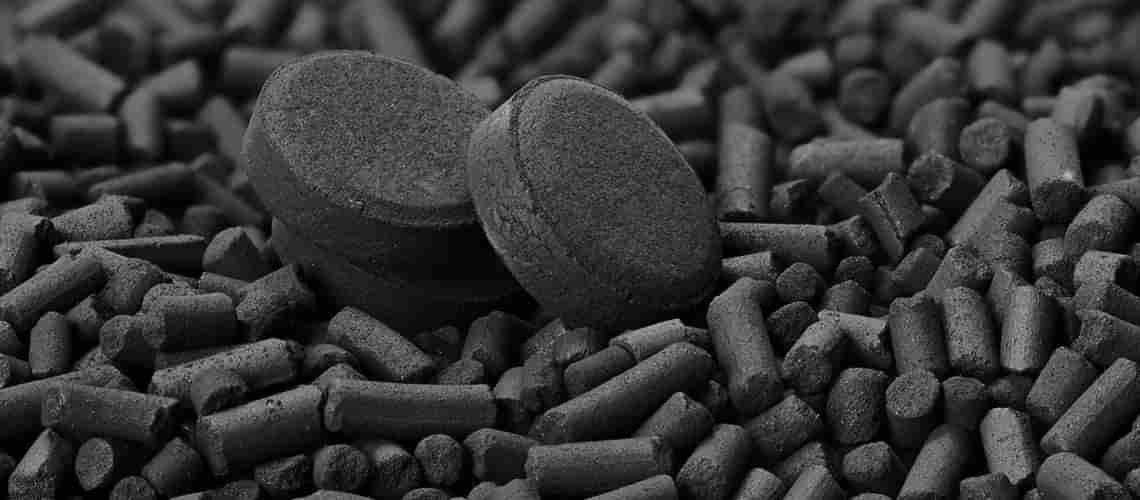- About
- Industries
- Products
- Wastewater Treatment
- Conventional Effluent Treatment: AQUASEP
- Toxic Refractory < 60,000 COD Removal: Catalytic Hydro-oxidation CHD-Ox
- Wet Air Oxidation for TOXIC > 60,000 COD : THERMOX
- Nanobubbles in Water Treatment: NANOPOREX-E
- Chemical-Free Cooling Tower Technology – A Sustainable Solution: ZEPHYR
- MVR for ZLD: Vapozem
- Membranes in wastewater Treatment: PROMEM
- TSS removal and Product recovery using Ceramics: PORESEP
- Heavy Metals and Trace Contaminant removal using Resins: SORBION
- Improving Efficiency of your sand bed filters: NANOMATRIX
- Choosing the Right technology for Wastewater treatment: Wastewater Treatability Studies’
- Reduce/Recover Oil from Wastewater: DISORB
- Produced Water Treatment: PWT
- Non Biofouling Membranes in wastewater Treatment: PROMEM-B
- Advanced Bioaugmentation Culture: BIOPORE
- Cavitation using Ultrasonics: RUSONICS-E
- Oxygen Generator System for Industries: OXYLIFE
- Process Solutions
- Precious Metal catalyst Filtration: CONTUFILT-M
- Activated Carbon Filtration: CONTUFILT-AC
- Raney Nickel Catalyst Filtration: CONTUFILT-RN
- Hot Gas Filtration: CONTUFILT – MH
- Biosolids removal using ceramics: PORESEP
- MVR for ZLD: VAPOZEM
- Ion Exchange-based RESINS: SORBION
- Dehydrating solvents by Zeolite Membranes: SOLVOSEP
- HiGee Continuous Distillation: ROTASEP
- Molecular Separation by Membranes: PROMEM
- Filtration & Separation
- Precious Metal catalyst Filtration: CONTUFILT – M
- Activated Carbon Filtration: CONTUFILT-AC
- Raney Nickel Catalyst Filtration: CONTUFILT-RN
- Hot Gas Filtration: CONTUFILT – MH
- Ceramic Dynamic Membrane Filtration: PORESEP
- MVR for ZLD: Vapozem
- Nano-Bubbles Improve Process Efficiency: NANOPOREX
- Alternate to Continuous Distillation / Rectification: ROTASEP
- Liquid-Liquid Extraction Mixer Settler: SEPARIX
- Ion Exchange-based RESINS: SORBION
- Pervaporation: Dehydrating Solvents and Separating Mixtures: SOLVOSEP
- Cartridges & Filter Bags: FLOWSEP™
- Molecular Separation by Membranes: Recovery and Isolation: PROMEM
- Colour / Organics / VOC Removal: CARBOSORB
- Oxygen Generator System for Industries: OXYLIFE
- RUSONIC – Sonochemistry
- Magnetic Separator Technology: MAG-Filt
- Wastewater Treatment
- Resource
- Contact Us
Factors to Consider When Choosing a Filter for Catalyst Filtration
Top Posts
Choosing the right filter for catalyst filtration is very important aspect in production the downtimes the catalyst losses can influence the bottom lines profitability and also the process efficiency catalyst filtration is used in various industries such as pharmaceutical chemicals fine chemicals specialty chemicals and petrochemicals the main purpose of this systems is to trap the fine catalyst particles and also to achieve consistent results in their manufacturing selection of catalyst filter becomes very crucial to meet these requirements and the right kind of filter can influence the process positively and due to its closed system it can also extend life of the catalyst let us discuss some key factors one should consider for choosing right catalyst filter for optimum efficiency and cost effectiveness.
Factors to consider choosing filter for catalyst filtration
Type of Catalyst
Different types of catalysts are used in chemical processing but the precious metal catalyst because very important because of its cost and also the losses during processing can affect the profitability of a company not forgetting the environmental impact it can have the type of catalyst are platinum on carbon Palladium on carbon ruthenium on carbon it could be your lights certain rare metals on porous structures these catalysts play a very important role in manufacturing and the catalyst filter finely becomes a crucial part of production to have consistent reliable and effective catalyst recovery and filtration.
Filtration Efficiency
The filtration efficiency of a catalyst filter depends on it’s particle capture capabilities with minimum losses and also ensuring a pure product and consistent production quality. Poor filtration efficiency on the other hand can affect the product with contaminated fines, choking of filters due to wrong selection could bring in frequent maintenance and finally the catalyst loss. So a good PSD particle size distribution of the catalyst defines what grade of filter and what efficiency has to be chosen for an uninterrupted production.
Operating Conditions
The operating conditions of the filters which include temperature pressure chemical environment pH density of the fluid significantly impact catalyst filter performance catalyst system must be robust enough to function under wearing conditions without degradation important parameters like difference in viscosities and pH can adversely affect the flow rates for example with Raney-Nickel catalyst this is very prominent and this has been dealt under the Raney-Nickel catalyst section in our website. Thus the filters have to be made from high grade materials such as specialty alloys Ti- based stainless steel which are ideal for high pressure and high temperature applications. Selecting a catalyst filtration system designed for your operating environment minimizes wear and extends the filter’s operational life.
Filtration Capacity
The required filtration capacity depends on the production scale and catalyst load. For large-scale industrial processes, a catalyst filter with a high capacity reduces downtime by minimising the frequency of filter replacements. In contrast, smaller operations may require a less demanding filtration capacity. Assess your production requirements and choose a catalyst filtration system that balances throughput with particle retention to meet operational goals effectively.
Maintenance and Replacement Costs
Maintenance and replacement costs can vary significantly among different catalyst filtration systems. Selecting a filter with low maintenance needs and long-lasting filter elements reduces operational costs over time. Systems like backwash-enabled catalyst filters simplify maintenance by cleaning the filter media without disassembly, prolonging filter life and reducing labor requirements. Opt for a filtration system that minimises maintenance costs while offering reliable performance.
Energy Efficiency
Energy-efficient catalyst filtration systems are essential for reducing operational expenses and achieving sustainability goals. Some catalyst filters require less energy by incorporating advanced filtration techniques or self-cleaning capabilities, which minimise the need for continuous power usage. A low pressure drop across the filter assembly not only requires low pumping rates but also is very essential during backwash cycles improving the backwashing of catalyst in a closed system effectively. Choosing an energy-efficient catalyst filter not only reduces costs but also supports environmentally conscious practices, an increasingly vital consideration in today’s industrial landscape.
Industry-Specific Requirements
Each industry has specific requirements that influence the choice of catalyst filtration systems. For example, pharmaceutical applications demand catalyst filters that meet stringent cleanliness and safety standards, while petrochemical processes may prioritise filters that withstand harsh chemical exposures. Understanding your industry’s requirements will guide you toward a filtration solution that enhances process integrity and meets regulatory standards.
Emerging Filtration Technologies
Emerging technologies in catalyst filtration, such as advanced metallic candle filters, nanofiltration, cross flow filtration, and automatic backwashing systems, offer promising solutions for improved performance. Continuous loop reactors use continuous filters and the catalyst is sent back to reactor while the product is drawn out continuously. These innovations enhance catalyst recovery, extend filter life, and reduce maintenance costs, making them attractive options for modern industrial applications. Staying informed about advancements in catalyst filtration technology allows you to leverage systems with improved operational efficiencies.
Environmental Impact
Environmental considerations are increasingly important in choosing a catalyst filtration system. Filters designed with sustainable materials and low energy requirements contribute to reducing your environmental footprint. Catalyst filtration systems with efficient backwashing or reuse capabilities also minimize waste, aligning with eco-friendly practices and regulatory standards. Consider the environmental impact when selecting a catalyst filter to support sustainable industrial operations.
Diva Contufilt-M
Diva Envitec’s Contufilt-M catalyst filtration system stands as an advanced solution for efficient and reliable catalyst filtration. Featuring a robust metallic candle filter design, Contufilt-M is optimised for capturing precious metal catalysts such as Platinum and Palladium, ensuring maximum recovery and reducing operational costs. The filter’s backwash functionality allows for effective in-situ cleaning, minimising downtime and maintenance needs. While most applications use metallic filters, there are corrosive environments where special Polymeric chemical corrosion resistant materials are used. PVDF, PFA and PTFE materials are commonly used in such applications.
Contufilt-M operates effectively under demanding industrial conditions, handling high pressures and temperatures, making it an ideal catalyst filtration system for challenging environments. The system is crafted with corrosion-resistant alloys, ensuring longevity and reliability in chemically aggressive applications. Its compact, closed design also reduces operator exposure, creating a safer work environment. By offering high filtration capacity and energy-efficient operation, Contufilt-M is suited for industries prioritizing process optimization, catalyst recovery, and sustainability. Diva Envitec’s focus on precision and durability makes Contufilt-M a premium choice in catalyst filtration solutions, particularly for high-value and high-demand applications.
Conclusion
Selecting the right filter for catalyst filtration can significantly enhance process efficiency, safety, and product quality. By considering factors like filtration efficiency, operating conditions, and energy use, industries can choose a catalyst filter that meets their needs effectively. Systems like Diva Envitec’s Contufilt-M offer innovative solutions for reliable catalyst filtration, helping industries achieve cost savings and maintain stringent product standards.
Learn more about the technology.
Related Posts

Industries
Wastewater Treatment
Separation Sciences
Contact
Sign in for latest updates
Stay informed with the latest updates from Diva Envitec! Sign up for our newsletter to receive exclusive news, insights, and case studies directly to your inbox.

Copyright © 2024 Diva Envitec
Terms of Service
Privacy Policy
Industries
Wastewater Treatment
Separation Sciences
Contact
Sign in for latest updates
Stay informed with the latest updates from Diva Envitec! Sign up for our newsletter to receive exclusive news, insights, and case studies directly to your inbox.


